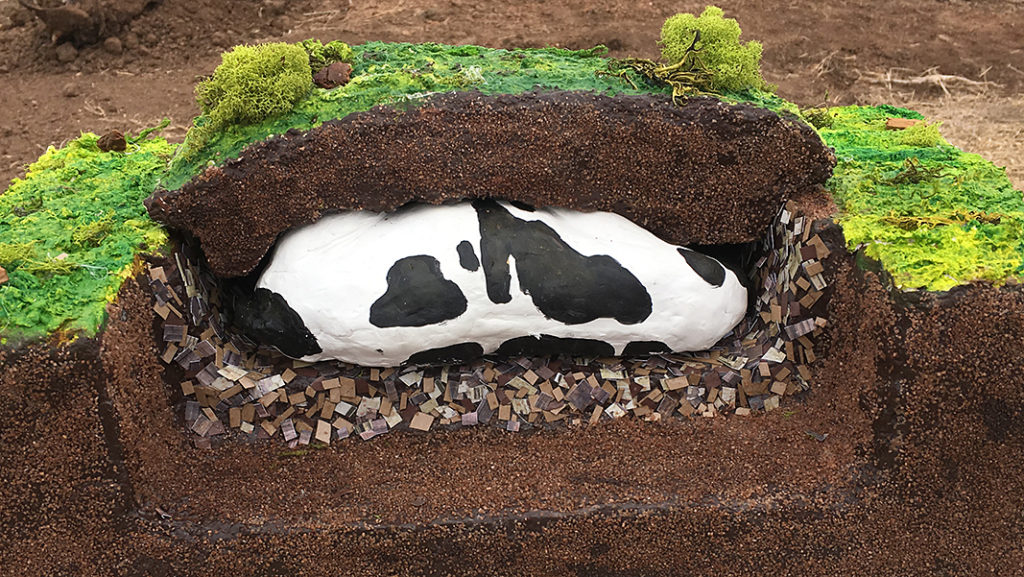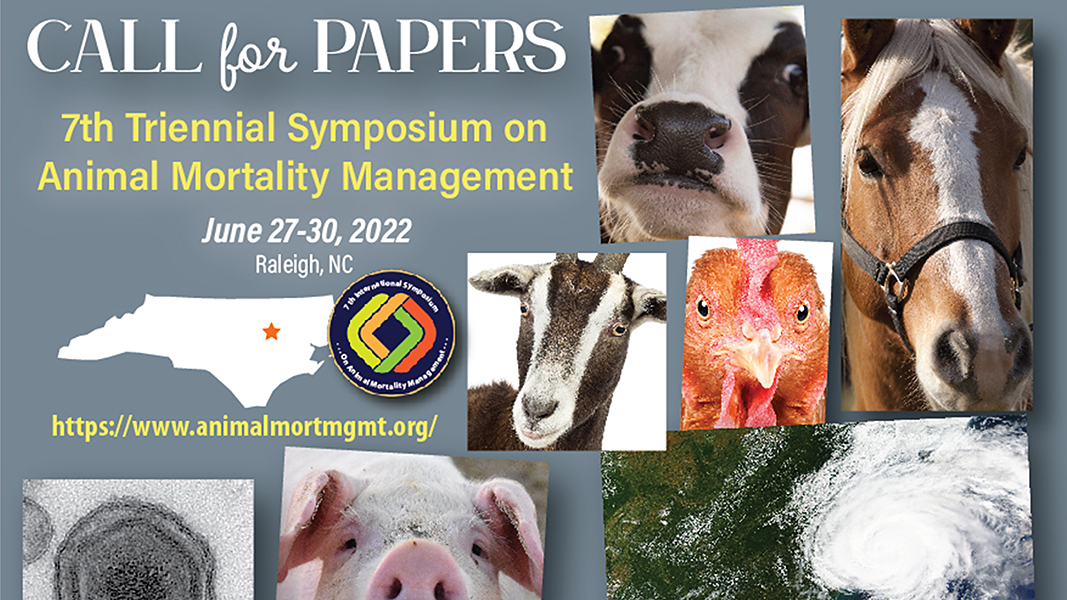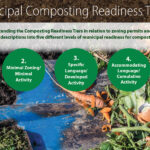The International Symposium on Managing Animal Mortalities, held triennially, focuses on collaborating and sharing information to advance sustainable practices regarding animal mortalities. These conferences have had tremendous success dating back to the start in 2005 and have garnered support from around the world. “The symposium is a great opportunity for those in agriculture, academia, government and other areas that have a vested interest in managing animal mortalities,” note the organizers. “This is increasingly important during times when faced with natural disasters such as hurricanes, wildfires, floods, and when faced with animal welfare issues including disease outbreaks. The purpose of the symposium has never been more evident since the outbreak of African Swine Fever and the impacts from COVID-19.”

Mortality composting demonstration as part of the 6th International Symposium. Photo courtesy of Rebecca Podgorski
The 7th International Symposium was scheduled for 2021, but was postponed due to the pandemic. It is now taking place in Raleigh, North Carolina, June 27-30, 2022. The event is being hosted by the North Carolina Department of Agriculture & Consumer Services. The Call for Papers is open; topics to be covered include:
- Carcass disposal in response to routine mortalities, accidental deaths, natural disasters, and disease outbreaks
- Food and feed chain disruptions
- Research and public policy on carcass disposal
- Federal and state agency response and training experience
- Carcass treatment (management) options
- New and emerging technologies for euthanasia, carcass treatment/disposal, and disinfection
- Final product use and disposition
Examples of submitted abstracts are Live Bird Market Poultry Carcass Compost Drill, Routine vs. Catastrophic Composting Management, and Grinding Animal Carcasses to Facilitate Disposal. Tours will take place as part of the event and tentatively include a biodigester, waste-to-energy plant, dairy farm, and broiler production facility. During the 7th International Symposium, various demonstrations will be conducted at an off-site location to highlight ongoing research, technologies, and almost everything related to animal mortality management.














